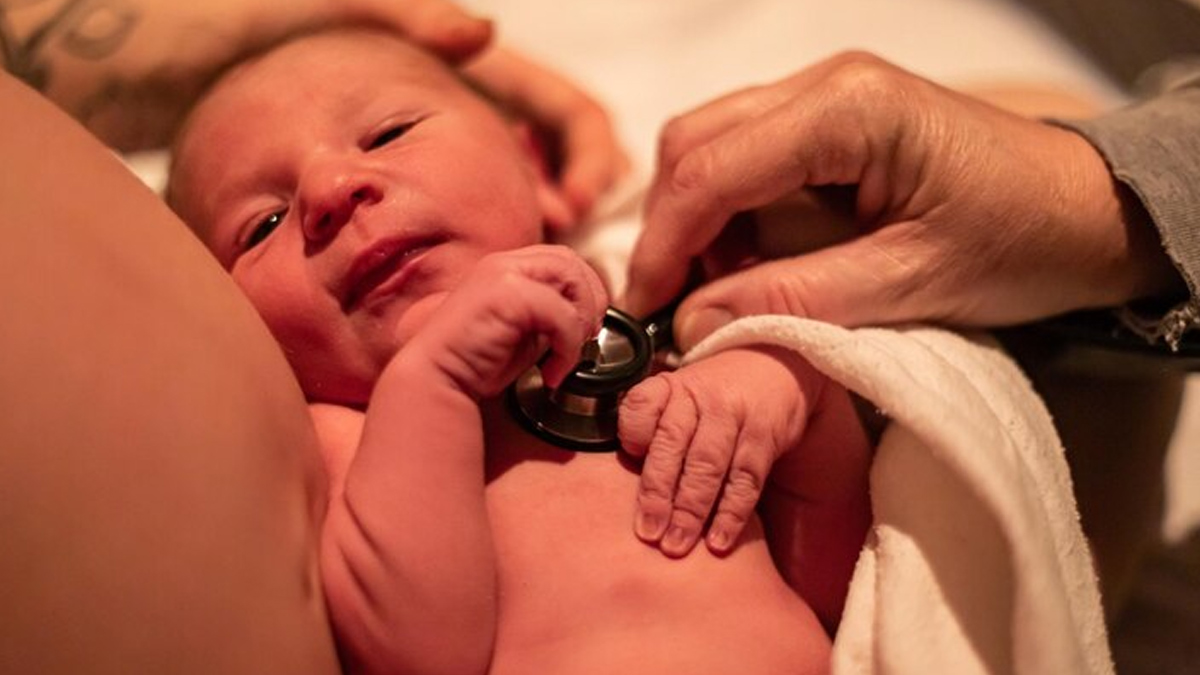
An expecting mother has several things to worry about, including birth defects. Questions like, ‘What if my baby has a heart defect?’ or ‘What if they are born with a cleft lip or palate?’ can be overwhelming. This is why OnlyMyHealth spoke to Dr Kaushaki Shankar, Senior Consultant and In-Charge, Neonatology—Max Super Speciality Hospital, Shalimar Bagh, to answer some of the most common questions people have about defects, including whether or not they are preventable. And here's what the doctor said.
Table of Content:-
Also Read: Genetic Counselling: Understanding Its Role In Identifying Potential Birth Defects
What Causes Birth Defects?

When it comes to understanding birth defects, the first question that is likely to be raised by people is, why do they occur?
Dr Shankar explained, "Birth defects can arise from genetic, environmental, or combined factors. Some are hereditary, caused by single-gene disorders (e.g., cystic fibrosis, sickle cell anaemia) or chromosomal abnormalities (e.g., Down syndrome, due to an extra chromosome 21).
Additionally, birth defects often result from both genetic predisposition and environmental triggers. Some of the key environmental risk factors include:
- High radiation levels, such as from medical imaging (X-rays, CT scans) during early pregnancy, can cause congenital malformations and developmental issues.
- Exposure to pesticides, heavy metals (lead, mercury), air pollution, and industrial chemicals can disrupt foetal development. Endocrine-disrupting chemicals found in plastics and pesticides may interfere with hormone systems.
- Maternal infections (e.g., rubella, Zika virus) can lead to brain malformations, microcephaly, and vision defects. Pregnant women are advised to take preventive measures, including vaccinations and infection screenings.
- Exposure to harmful substances (alcohol, tobacco, certain drugs)
- Poor maternal nutrition, like folic acid deficiency, which can lead to neural tube defects
- Advanced parental age, which increases chromosomal risks
Can The Risk Of Birth Defects Be Lowered?

Birth defects, also known as congenital disorders, claim the lives of an estimated 2.4 lakh newborns worldwide every year, according to the World Health Organization (WHO), who adds that this happens within 28 days of birth. Additionally, congenital disorders can cause a further 1.7 lakh deaths of children between the ages of one month and five years.
As per the WHO, some congenital disorders can be prevented. "Vaccination, adequate intake of folic acid or iodine through fortification of staple foods or supplementation, and adequate care before and during a pregnancy are examples of prevention methods," the global health body shared.
Some of the precautionary steps advised by Dr Shankar include:
- Taking folic acid daily before and during early pregnancy to prevent neural tube defects.
- Avoiding alcohol and smoking to prevent serious congenital disabilities and developmental issues.
- Maintaining a healthy lifestyle with a balanced diet, regular exercise, and managing chronic conditions like diabetes
- Prenatal care, timely vaccinations, and avoiding harmful medications or environmental toxins.
Also Read: Understanding Congenital Anomalies: Symptoms, Causes, And Prevention Tips For Birth Defects
Are There Ways To Assess The Risk Of Birth Defects Beforehand?
According to Dr Shankar, genetic testing can help couples assess the risk of birth defects by identifying inherited genetic conditions or chromosomal abnormalities.
“Preconception genetic testing detects whether both partners are carriers of recessive genetic mutations (e.g., cystic fibrosis, sickle cell anaemia). If both parents carry the same mutation, they can explore options like IVF with preimplantation genetic testing or using donor eggs/sperm,” he added.
Prenatal genetic testing includes screening tests (like first-trimester screening and NIPT) to estimate the risk of conditions such as Down syndrome, and diagnostic tests (like amniocentesis and CVS) for definitive confirmation of genetic disorders.
A 2020 study published in the journal Acta Biomedica suggests that advances in prenatal screening help detect foetal abnormalities early, which cause 20% of perinatal deaths. According to the study, Non-Invasive Prenatal Testing (NIPT) and Next-Generation Sequencing (NGS) help identify genetic disorders with over 97% accuracy, reducing the need for invasive tests like amniocentesis. Early detection enables treatments such as in-utero gene therapy and prenatal surgery for severe conditions like spina bifida and congenital diaphragmatic hernia. However, accessibility is still an issue.
Moreover, genetic counseling plays a key role by helping couples understand test results, assess risks, and explore reproductive options to make informed decisions for a healthy pregnancy.
How Do Prenatal Supplements Help Reduce Birth Defect Risk?

Prenatal supplements, especially those containing folic acid, have been shown to significantly reduce the risk of birth defects, including neural tube defects, as reported in a study published in the Journal of Family Medicine and Primary Care.
Other essential supplements include iron, calcium, and vitamin D, which support foetal development and maternal health, said Dr Shankar, adding that omega-3 fatty acids (DHA) aid brain development, while iodine is important for thyroid function and cognitive growth.
In addition to supplements, maintaining a healthy lifestyle with a balanced diet, regular exercise, and managing chronic conditions like diabetes is vital. Prenatal care, timely vaccinations, and avoiding alcohol, smoking, harmful medications, or environmental toxins further contribute to a healthy pregnancy.
Birth Defect Risk in Second Pregnancy: What Are the Chances?
Dr Shankar responded, saying that the recurrence risk of birth defects depends on the underlying cause of the birth defect.
“If it is genetic, there is a higher chance of recurrence, and genetic counselling is advised. If it was caused by environmental factors or maternal health conditions, managing those risks effectively can lower the chances of a birth defect in the next pregnancy.”
Conclusion
Birth defects can be caused by several factors; however, there is no exact cause for why they occur. While not all birth defects or congenital disorders are preventable, the risk of certain types of birth defects can be reduced by maintaining good prenatal care, adopting a healthy lifestyle, and undergoing genetic screening. It is crucial to consult a doctor if you have any questions or doubts about your pregnancy.
Also watch this video
How we keep this article up to date:
We work with experts and keep a close eye on the latest in health and wellness. Whenever there is a new research or helpful information, we update our articles with accurate and useful advice.
Current Version